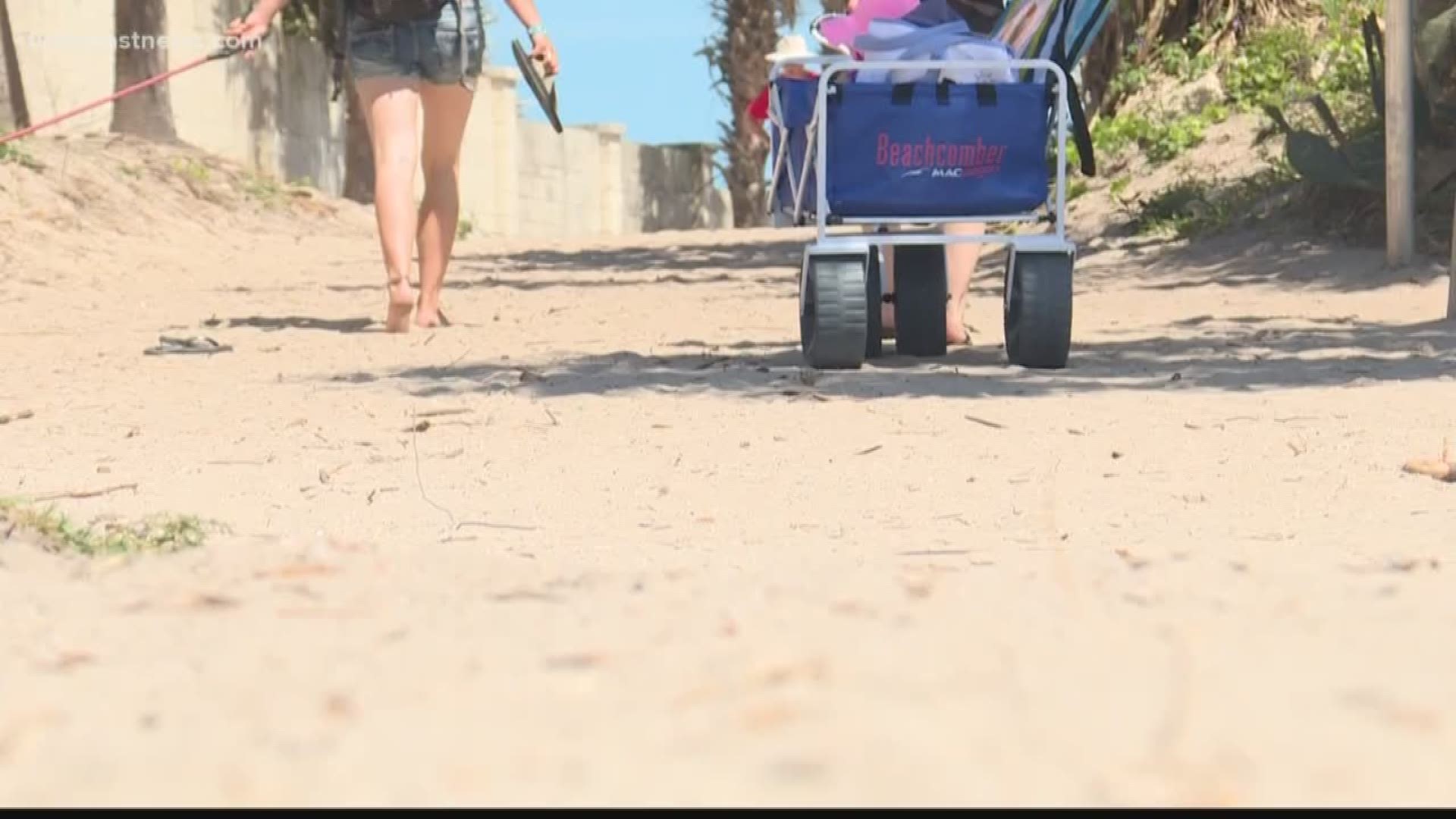Local governments will have a more difficult time ensuring public access to some of Florida’s prized beaches after Gov. Rick Scott signed a bill from the legislative session.
The new law will restrict a local government’s ability to pass customary-use ordinances, which are needed for ensuring public access to private beaches.
A judge now will decide whether the public can walk or sunbathe on privately owned sand.
The sand below the high tide line always is open to walking, fishing and other beach activities. Anything landward could be private property, just like someone’s front yard.
Like the sand along Naples Pier, many beaches around the state are owned by governments and open to the public.
But land along Vanderbilt Beach in North Naples, for example, is privately owned, though used by many visitors during the winter and spring.
Just south of the Vanderbilt Beach parking garage, The Ritz-Carlton resort property line stretches onto the beach, as evidenced by beach chairs for hotel guests. Its beaches now are partly open to other sunbathers, but fences used to bisect the sand at the property line.
Public anger spurred a Collier County response, and the hotel now restricts some of the beach to its guests only during the peak 30 days of the tourist season.
The fence was one of the few times Collier County had to deal with an obvious public-private rights contest on the beach, and it ended with an uneasy understanding instead of a solid policy decision.
Some homeowners take a subtler approach, posting “no trespassing” signs near the beach to keep away relaxing sunbathers, loud partiers and other visitors.
But few landowners take any additional steps such as a fence or calling law enforcement officers because of trespassing.
Walton County, between Pensacola and Panama City in the Panhandle, will feel the brunt of the new law. A customary-use ordinance allowing visitors to walk, sunbathe and picnic on private beaches was enacted a year ago. The ordinance will end July 1 when the state law signed last week goes into effect.
“We fought hard for this (customary-use ordinance),” Walton County Commissioner Tony Anderson said at a recent meeting. “We’re going to continue. As long as I’m on this board and drawing a breath, we’ll continue to fight for this.”
Walton County already was entangled in a half-dozen lawsuits challenging various parts of the ordinance, and those likely will end.
Only one major ruling was made, and it was in favor of Walton County. A federal judge stated the commissioners had the authority to pass a customary-use ordinance. The ruling further stated property owners can challenge in court.
The new law circumvents that ruling. A city or county must submit one lawsuit to decide whether a beach fits the definition of customary use — ancient, reasonable, without interruption and free from dispute.
If a government is able to prove a strip of sand has been used by the public for many years regardless of private ownership, it likely will win the case.
An ordinance then could be passed to open the beach to the public.
Any private property owner could be involved in the suit.
Walton County likely will be the first to try the process and determine whether any changes to the law are needed.
However, bill sponsor state Sen. Kathleen Passidomo, R-Naples, said no new legislation concerning beach ownership is on her radar.
“It’s a good process, and hopefully (Walton County) can figure out that process,” she said.

